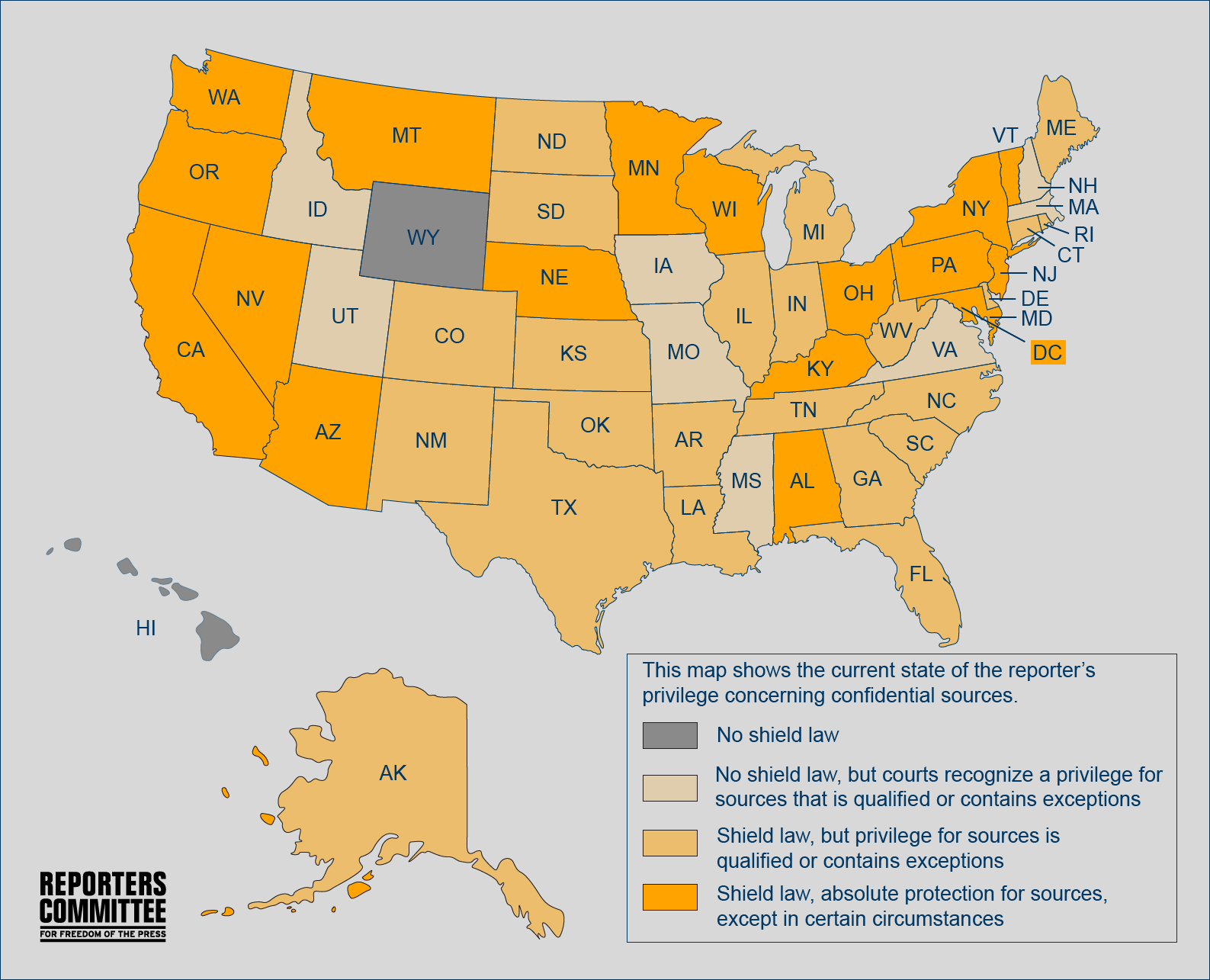5. Reporters Privilege
Reporters Privilege
Reporter's privilege is a crucial aspect of journalistic freedom, allowing reporters to fulfill their role as watchdogs of democracy without fear of reprisal or censorship. At its core, reporter's privilege refers to the legal protection afforded to journalists that shields them from being compelled to disclose their confidential sources or unpublished materials in legal proceedings. This privilege is rooted in the recognition that a free and independent press is essential for a functioning democracy, and that journalists must be able to gather and report news without undue interference or coercion.
 |
Map of the current state of the reporter's privilege concerning confidential resources
One of the key components of reporter's privilege is the protection of confidential sources. Many journalists rely on confidential sources to provide them with sensitive information that is vital to the public interest but may be subject to retribution or retaliation if their identity were revealed. Without the assurance of confidentiality, sources may be unwilling to come forward with important information, leading to a chilling effect on investigative journalism and hindering the public's right to know.
In addition to protecting confidential sources, reporter's privilege also extends to unpublished materials, such as notes, recordings, and drafts of articles. These materials are often crucial to the reporting process and may contain sensitive information that could compromise the safety or integrity of sources if disclosed. By safeguarding these materials, reporter's privilege ensures that journalists can conduct thorough and independent investigations without fear of having their work unfairly scrutinized or compromised.
However, it's essential to note that reporter's privilege is not absolute and may be subject to limitations under certain circumstances. For example, courts may compel journalists to disclose their sources or unpublished materials if the information is deemed essential to a legal proceeding and cannot be obtained through alternative means. Additionally, reporter's privilege may vary depending on the jurisdiction and the specific circumstances of the case, with some states or countries offering stronger protections than others.
Despite these limitations, reporter's privilege plays a vital role in upholding the principles of a free press and ensuring the public's right to access information. Without the ability to protect confidential sources and unpublished materials, journalists would be unable to fulfill their duty to hold those in power accountable and provide the public with the information they need to make informed decisions. As such, reporter's privilege is not just a legal protection for journalists—it's a cornerstone of democracy that must be upheld and defended to preserve the integrity of the press and the rights of the public.

Comments
Post a Comment